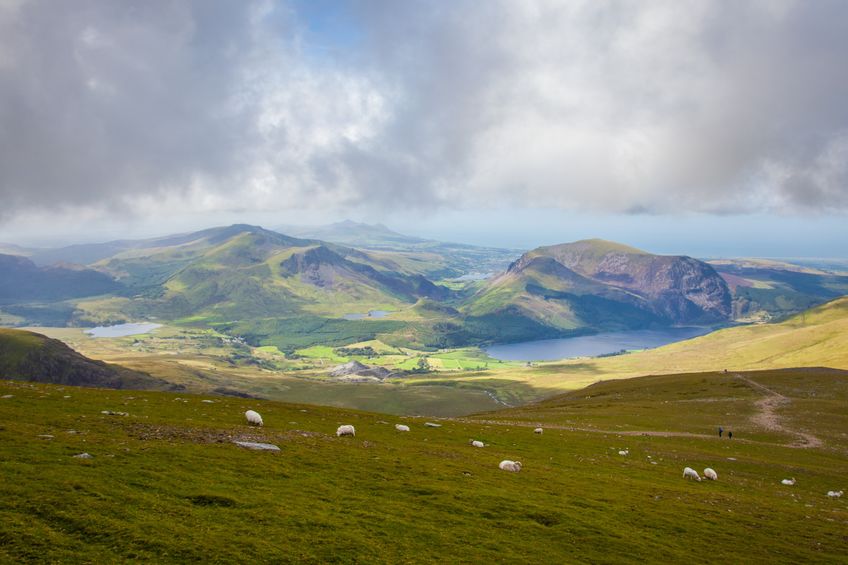
The carbon footprints of Welsh beef and sheep farms are amongst the lowest in the world, researchers have confirmed.
Detailed analysis of 20 sheep and beef farms was undertaken, including researching how much carbon they stored through grassland and trees.
It found that beef cattle were responsible for a net 11-16kg of CO2 equivalent emissions per kilo on average.
Previous studies have suggested a global average of around 37kg of CO2 equivalent emissions per kilo.
The Bangor University study showed that sheep and lambs were associated with 10-13kg of CO2 equivalent emissions.
Again, this places Wales towards the lowest end of studies conducted elsewhere in the world.
The research suggests that carbon sequestration – the process by which carbon dioxide is naturally absorbed from the atmosphere – can be promoted by farmers’ land management techniques.
Hill farms examined had a lower than expected environmental impact, suggesting that hilly and rainy locations like Wales, where 81% of farmland is permanent grassland, are among the most sustainable habitats to produce meat.
Dr Prysor Williams, senior lecturer in environmental management at Bangor said: "The carbon footprints of many of these selected farms are amongst the lowest reported for other lamb and beef producing countries.
"Our results indicate that Welsh lamb and beef producers have the potential to be some of the most sustainable farming systems globally.”
Katie-Rose Davies, a beef and sheep producer in Wales, said she wanted to make sure that the farming industry was 'sustainable long into the future'.
"That’s why we use traditional farming, grass and rainwater to rear animals to minimise pressure on natural resources," she added.
The farm also uses special grazing techniques to encourage the habitat of rare species, such as Golden Plovers.
"We also maintain a large area of peatland which is vital for carbon storage and one of the ways we contribute to mitigating climate change,” she said.
The study was funded by Hybu Cig Cymru (Meat Promotion Wales), which said the research proved 'the answer was not to stop eating red meat'.
Its chief executive Gwyn Howells said: "Wales is already leading the way in helping the environment, but we know there’s a lot more to do.
"That’s why we’re working to reduce our overall agriculture emissions by 7.5% in the coming years, in order to help Wales reach net zero by 2050.”
